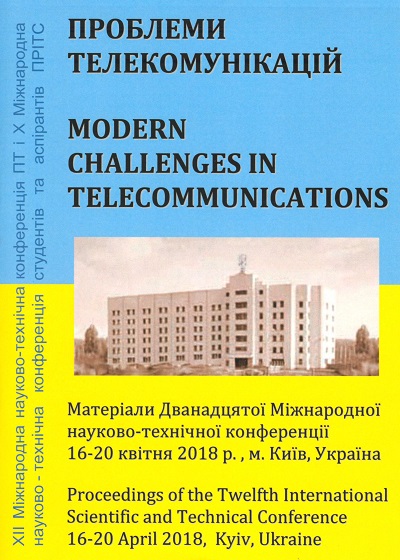ВПРОВАДЖЕННЯ ОСВІТНІХ ЕЛЕКТРОННИХ ЗАСТОСУВАНЬ В НАВЧАЛЬНИЙ ПРОЦЕС
Анотація
Implementation of educational application
into the learning process
The abstract describes the benefits of using educational applications in the learning process. And the process of developing such programs for training. Possibilities for development of such programs for various educational subjects are obtained. The main idea of application is to create a resource for preparation for laboratory work. Students were able to review the theoretical knowledge necessary for preparation for laboratory work. Students could consider and practice a phased procedure of laboratory work.
Посилання
Brzezinski Z. Between Two Ages. America's Role in the Technetronic Era / Z. Brzezinski. The Viking Press, 1970, P.123.
Державне агентство з питань електронного урядування України [Електронний ресурс] – режим доступу: http://www.e.gov.ua/content/dovidkovo , вільний.
Ковалинська І. Використання електронного навчального простору [Електронний ресурс]/ І. Ковалинська //Український науковий журнал "ОСВІТА РЕГІОНУ", №4 2012, с. 239 – режим доступу: http://social-science.com.ua/article/931, вільний.
Ившина Г. В. Разработка электронных образовательных ресурсов: мониторинг качества и внедрение Часть1. Учебно-методическое пособие по направлению «Электронные образовательные ресурсы» / Казанский государственный университет им. В.И. Ульянова-Ленина; Автор-сост.: Г. В. Ившина - Казань: КГУ, 2008.
##submission.downloads##
Як цитувати
Номер
Розділ
Ліцензія
Авторське право (c) 2018 Антон Олександрович Чічіков, Олена Сергіївна Штогрина

Ця робота ліцензується відповідно до Creative Commons Attribution 4.0 International License.
Authors who submit to this conference agree to the following terms:a) Authors retain copyright over their work, while allowing the conference to place this unpublished work under a Creative Commons Attribution License, which allows others to freely access, use, and share the work, with an acknowledgement of the work's authorship and its initial presentation at this conference.
b) Authors are able to waive the terms of the CC license and enter into separate, additional contractual arrangements for the non-exclusive distribution and subsequent publication of this work (e.g., publish a revised version in a journal, post it to an institutional repository or publish it in a book), with an acknowledgement of its initial presentation at this conference.
c) In addition, authors are encouraged to post and share their work online (e.g., in institutional repositories or on their website) at any point before and after the conference.

